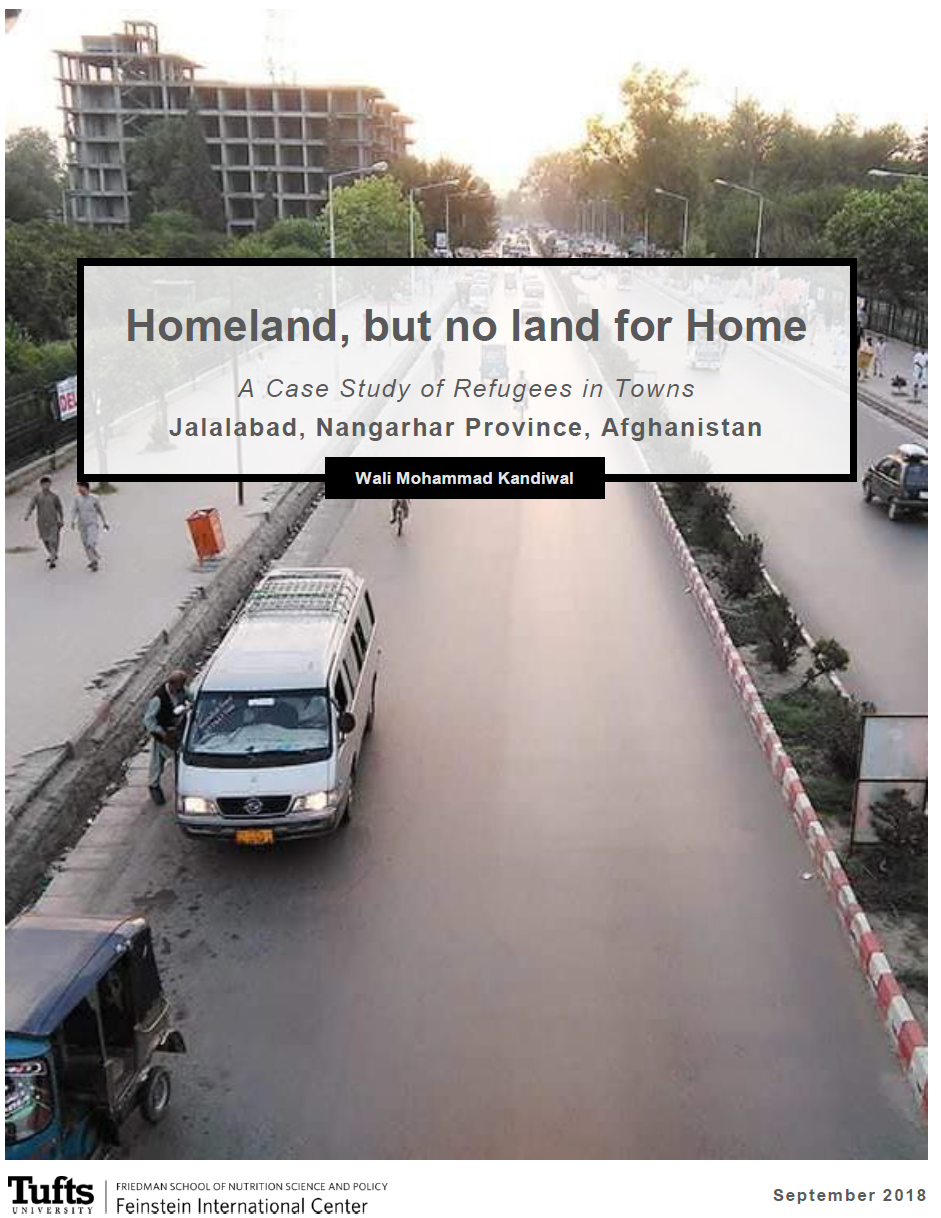Feinstein International Center | Tufts University
A report by Wali Mohammad Kandiwal
Jalalabad, Afghanistan: A Case Study of Refugees in Towns
This case report explores the challenges faced by Afghan refugees who have returned from Pakistan to Nangarhar province of Afghanistan, including the city of Jalalabad and its neighboring townships and districts. It explores the returnees’ experience of reintegration back into their home country and focuses on their access to land.
Land ownership is the main pillar of the Afghan government’s official reintegration strategy. The Land Allocation Scheme and Presidential Decree define the land application processes, selection of beneficiaries, and prioritize the neediest among landless returnees. InNangarhar, it is nearly impossible to have status at the neighborhood level, to find work, or to become socially respected without owning land.
This report gives voice to returnees who explain the importance of land from their perspective. The report is based on the author’s own experiences as a resident of Nangarhar Province, supplemented by fieldwork in Nangarhar.
The response of the Afghan government to landless returnees has not addressed the problem adequately, and thus the number of landless returnees and the challenges they face with reintegration are growing.
Land issues will become an increasing challenge for the Afghan government and for the reintegration of returnees in the coming years. To avoid a worsening situation, the revised decree should ensure that only landless returnees are included. The revision should avoid the misallocation of land and the misuse of land as an incentive or “pull factor” to encourage refugees to return to Afghanistan.
Afghan refugee returnees do not use the term “reintegration” as conceptualized by the international community, and often do not know the term’s translation in Pashto or Dari. However, they can clearly explain how landlessness affects them financially andsocially, andthe importance of accessing land and regular housing in becoming settled and included in host communities.
Finally, land plays an important role in building ties through marriage: the first or second question with a marriage proposal is always whether the husband’s family owns their home and land. Land is therefore the most important thing linking people to each other in Nangarhar, and land ownership allows one to be a participant in social life. In any social relationship, land has a crucial role, so if the aim of integration is the “disappearance” of inequality between returnees and hosts, this goal is unrealistic without access to land and houses.
Housing rents have risen with the dramatic increase of land prices starting in 2002 with the mass return of refugees. Land grabbing by warlords and their supporters have enabled them to make enormous sums of money in a very short time, with little investment. Consequently, a small minority of individuals own several houses, while many families do not have a single room to stay in. Many returnees therefore live in informal settlements, without documentation and are consequently vulnerable to forced eviction.
Returnees explained that families living in a rental house are not seen as members of the community because it is known that they could leave anytime and are not considered long-term neighbors. This means they are less welcome in events like Kha Aw Bada or in community decision-making. Kha Aw Bada is a Pashtu term meaning, in this context, Kha—a party held because of a happy event such as an engagement or wedding party, and Bada—the opposite, an event held because of something sad or sorrowful, as when someone gets injured or dies. In either case, the household invites relatives and neighbors to participate. The role of relatives is to welcome guests and help serve food and tea, while neighbors make their houses available for out of town guests for one or two days, or until the event finishes. In most cases those renting houses are excluded from this role in the community.
Read the full report HERE.


